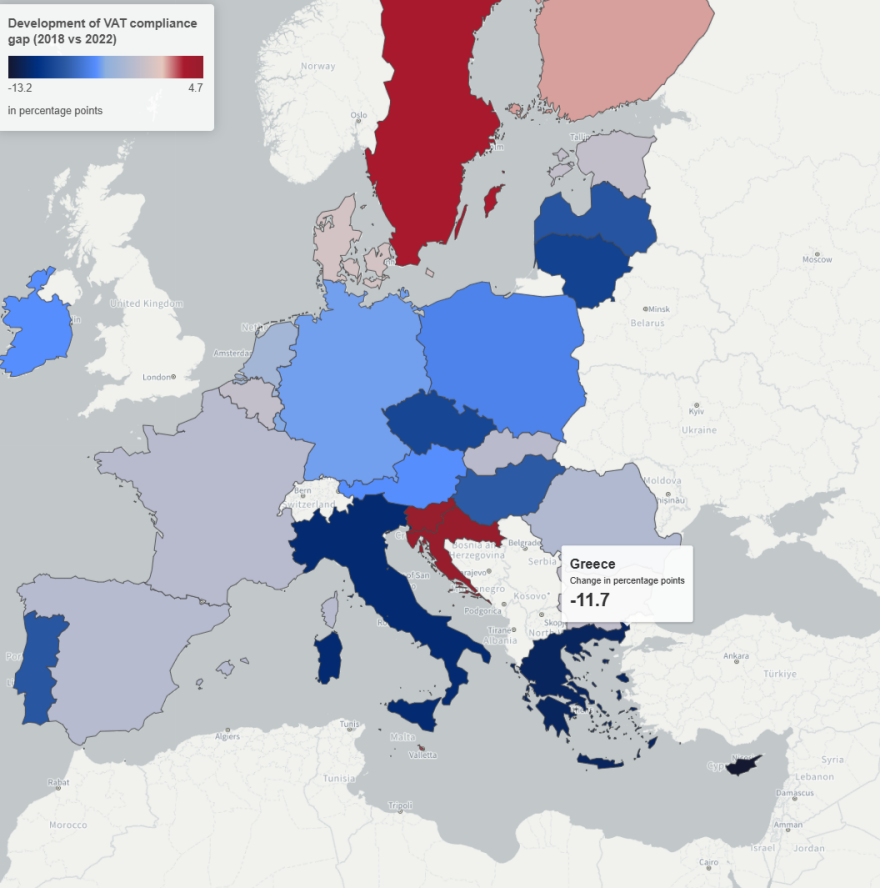In the wake of the pandemic, tax evasion in the VAT is up in Europe, but down drastically in Greece. And every reduction in tax evasion achieved on a permanent basis paves the way for new -permanent- tax breaks, as the prime minister foreshadowed in his statements two weeks ago.
The new European Commission report on the VAT Gap, released yesterday, shows that while losses in the EU as a whole increased, from 6.6% in 2021 to 7% in 2022, in Greece they fell drastically from 17.5% to 13.7%.
Although the gap is twice the European average, according to the Commission, Greece shows the 2nd largest improvement across the EU in the fight against VAT evasion, up 11.7 percentage points compared to 2018 (from 25.4% then to 13.7% now), compared to 13.2 points in Cyprus and 11.1 points in Italy. Proportionally, this means that compared to 2018, the VAT compliance gap decreased by 45%, or 53% compared to 2017, when almost 30% of VAT “disappeared” due to tax evasion.
In absolute terms, from 2017 to 2022, Greece lost €25.79 billion due to VAT tax evasion, according to Commission data. These losses have a direct impact on the possibilities of financing support measures for vulnerable households, strengthening the middle class, as well as on the financing of sectors such as education and health.

By using new measures to control and fight tax evasion already implemented since May, the Finance Ministry estimates that it will save €1.8 billion in 2024.
However, estimates from the State Budget Office in parliament suggest that the final benefit for 2024 could reach €1.9-2 billion, making the strategic target of €2.5 billion in tax evasion revenue before the end of the government’s term realistic.
Ask me anything
Explore related questions





